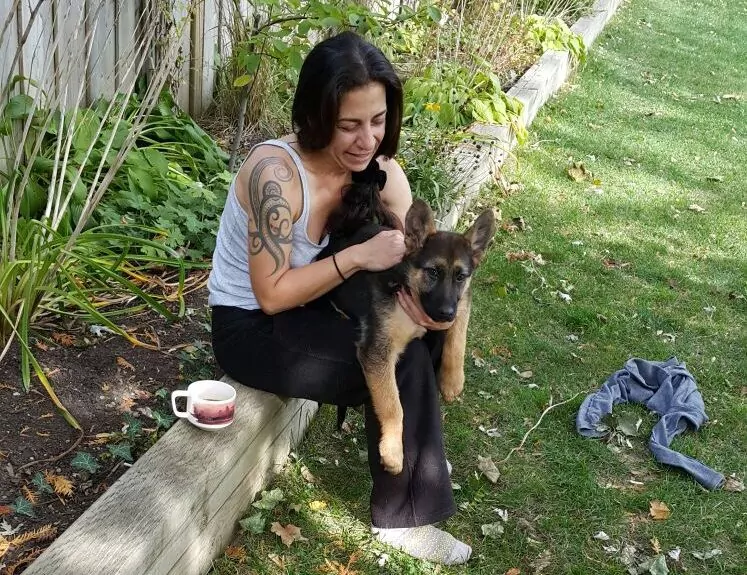
In this month’s reflection, I want to invite you to think about your relationship with your dog and your way of life with them as mirroring the three stages of any living being’s development: Juvenile, Adolescent, and Adult.
Thinking in stages is a cornerstone of the Way of Life method, a unique approach to raising dogs and helping them recover from behavioural issues. In my upcoming book, The Way of Life Method: How to Heal Your Relationship with Your Dog and Raise a Sound, Strong, and Spirited Companion (At Any Age), I detail our way of life as it changes across these stages.
Every mammalian specie in the animal kingdom raises their young across these three developmental stages. Wolves, whom I have studied closely and whose approach to rearing their young has inspired my three-stage methodology, do things differently when they are raising newborn cubs versus when these cubs become adolescents who are ready to leave their dens, and when these adolescents become young adults.
As humans, we do the same with our kids, relating to them and dealing with them differently as they grow from childhood to their teen years until becoming what is called in research “emerging adults.” As a university professor of more than two decades, I work with my students depending on their level, relating to my undergraduate, masters, and doctoral students differently.
For some reason, we don’t apply this logic with our dogs and have stages all mixed up. When we bring a new puppy home, we give that young dog the choices and liberties of an adult. Similarly, we treat our adult dogs like babies because we’re constantly telling them what to do, always cuing, asking, and commandeering.
In contrast, the Way of Life method asks that each stage be given its due. When I am first getting started with a dog, I ask my clients to see that dog as a child or juvenile, regardless of that dog’s age. When a dog is new to us, they are like a “child” in a foreign environment, vulnerable and unsure what to do. When we have a dog with behaviour issues, that dog too is to be considered a juvenile because behavioural issues stunt development and keep dogs immature.
Seeing our dogs as juveniles when we are first getting started with the Way of Life method has implications for how we relate to and handle our dogs. Would we expect a child to know what to do? Would we expect a child to have manners and exercise self-control? Would we discipline a child? Reflecting on these questions prepares us to handle our dogs as if they are new, as if they are pups, as if we’re starting all over again. This reset in our perception of our dogs and in our relationship is fundamental to the healing power of the Way of Life method.